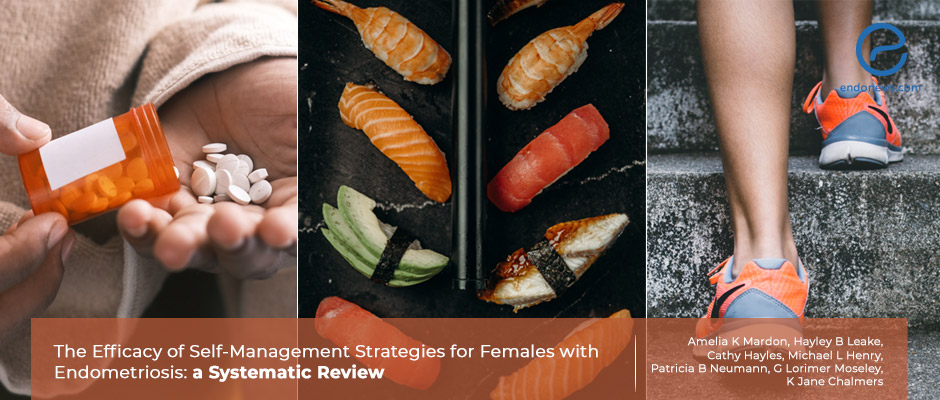Self-Management Strategies for Endometriosis
Jun 8, 2022
Many self-management strategies not better than placebo or hormonal therapies in reducing endometriosis symptoms, study finds.
Key Points
Highlights:
- Most self-management strategies are not more effective in reducing endometriosis symptoms.
Importance:
- Patients should be aware that most self-management strategies have the risk of bias and may not be more effective than a placebo.
What's done here:
- Researchers conducted a systematic review of the literature to evaluate the efficacy of self-management strategies among women with endometriosis.
Key results:
- Most self-management strategies had a high-critical risk of bias.
- Many self-management strategies were not more effective than placebo or hormonal therapy.
Limitations:
- There was high heterogeneity between studies so the authors could not compare effect estimates between them.
- There is no gold standard definition for “self-management strategies”.
- Only studies in English were included.
Lay Summary
Many self-management strategies for endometriosis are not more effective at reducing the symptoms of the disease compared to placebo or hormonal therapies, according to a new study published in the journal Reproductive Sciences.
The authors, therefore concluded that “no recommendations can be made due to the poor quality and heterogeneity of evidence”. “High-quality empirical evidence is required to investigate the efficacy of self-management strategies for females with endometriosis,” they wrote.
Self-management strategies are of great importance for the management of symptoms in endometriosis. Women with the disease often use these strategies, but it is not known how efficient they are.
In order to assess the efficacy of these self-management strategies, a team of researchers led by Dr. K Jane Chalmers conducted a systematic review of the literature of peer-reviewed experimental studies that evaluated the efficacy of self-management strategies in women who were laparoscopically diagnosed with endometriosis. These strategies included dietary supplements, dietary modifications, over-the-counter medications, and exercise.
The researchers identified 15 such studies. Most of these had a high-critical risk of bias. Many of the strategies used by the women were not more effective at reducing the symptoms of the disease.
Research Source: https://pubmed.ncbi.nlm.nih.gov/35488093/
self-management strategies endometriosis symptom diet exercise over-the-counter medication

